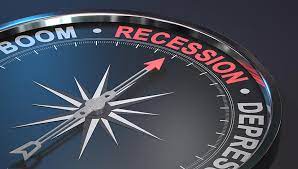
According to figures released on Thursday, New Zealand entered a recession as a result of the first quarter's economic contraction. This decreased the likelihood that the central bank would need to raise interest rates further, but it also added a new challenge for the government's bid for re-election.
The March quarter's gross domestic product (GDP) was in line with analysts' predictions of a 0.1% decline but fell far short of the Reserve Bank of New Zealand's (RBNZ) forecast of 0.3% growth. In addition, the fourth quarter's GDP was downgraded from a 0.6% loss to a contraction of 0.7%.
As a result of the data, which met market expectations and supported the central bank's view that no additional interest rate increases would be necessary, the New Zealand dollar fell 0.2% to $0.6197.
According to Statistics New Zealand data, the economy was weak across the board with half of the nation's industries reporting decreased output. The effects of two significant cyclones and flash floods in Auckland in January and February impacted growth.
"It's clear that the New Zealand economy is losing momentum," Westpac senior economist Michael Gordon said in a note. "What remains to be seen is whether things have slowed enough to put us on a path back to low and stable inflation.”
New Zealand's robust employment situation limits the negative consequences of a recession on a large number of individuals.
Although the recession is still technically ongoing despite two consecutive quarters of decline, it has taken on enormous political significance as New Zealand prepares for its October election and citizens grapple with rising living expenses.
New Zealand's inflation rate is at 6.7%, significantly higher above the central bank's goal range of 1% to 3%.
According to economists, the central bank, which has claimed it is seeking to fabricate a recession to control inflation in its most severe policy tightening since 1999, when the cash rate was implemented, will welcome signs that momentum is slowing.
The cash rate has increased by 525 basis points since October 2021 and is currently at 5.5%, which is its highest level in 14 years. At its most recent meeting in May, the central bank said that the cash rate has peaked.
"As demand-side pressures on inflation continue to abate, the case for rate cuts will become increasingly compelling," Capital Economics economist Abhijit Surya said in a note.
(Source:www.businesstoday.in)
The March quarter's gross domestic product (GDP) was in line with analysts' predictions of a 0.1% decline but fell far short of the Reserve Bank of New Zealand's (RBNZ) forecast of 0.3% growth. In addition, the fourth quarter's GDP was downgraded from a 0.6% loss to a contraction of 0.7%.
As a result of the data, which met market expectations and supported the central bank's view that no additional interest rate increases would be necessary, the New Zealand dollar fell 0.2% to $0.6197.
According to Statistics New Zealand data, the economy was weak across the board with half of the nation's industries reporting decreased output. The effects of two significant cyclones and flash floods in Auckland in January and February impacted growth.
"It's clear that the New Zealand economy is losing momentum," Westpac senior economist Michael Gordon said in a note. "What remains to be seen is whether things have slowed enough to put us on a path back to low and stable inflation.”
New Zealand's robust employment situation limits the negative consequences of a recession on a large number of individuals.
Although the recession is still technically ongoing despite two consecutive quarters of decline, it has taken on enormous political significance as New Zealand prepares for its October election and citizens grapple with rising living expenses.
New Zealand's inflation rate is at 6.7%, significantly higher above the central bank's goal range of 1% to 3%.
According to economists, the central bank, which has claimed it is seeking to fabricate a recession to control inflation in its most severe policy tightening since 1999, when the cash rate was implemented, will welcome signs that momentum is slowing.
The cash rate has increased by 525 basis points since October 2021 and is currently at 5.5%, which is its highest level in 14 years. At its most recent meeting in May, the central bank said that the cash rate has peaked.
"As demand-side pressures on inflation continue to abate, the case for rate cuts will become increasingly compelling," Capital Economics economist Abhijit Surya said in a note.
(Source:www.businesstoday.in)





